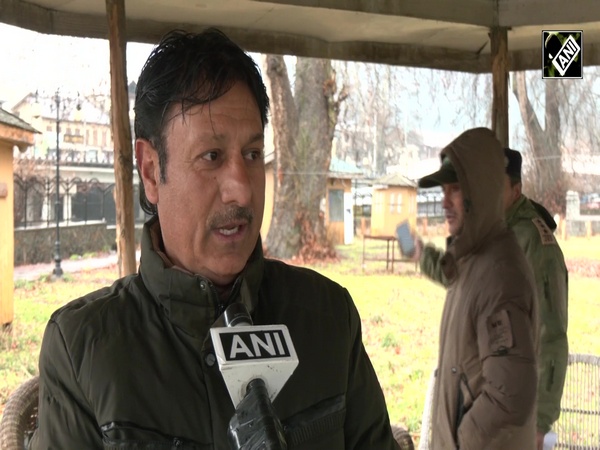Corona cases flare-up as countries ease social distancing guidelines
May 11, 2020

Washington D.C. [USA], May 11 : Coronavirus infections are rising in the United States and other countries as governments across borders have started easing social distancing guidelines and restrictions that have kept millions isolated and decimated economies.
Health officials in Pasadena, California, warned on Saturday against Mother's Day gatherings after a cluster of new covid-19 cases was identified there among a large group of extended family and friends attending a recent birthday party, despite a stay-at-home order in effect, The Washington Post reported.
Through contact tracing, investigators discovered more than five confirmed cases and "many more ill individuals" linked to the party, the local public health department was quoted as saying.
The controversy over when, and how much, to ease the restrictions have taken on a sharp political overtone, with protests especially in the United States, with occasional violence against those trying to keep the rules in place.
In a similar manner, South Korean officials, who recently began to loosen social distancing requirements, ordered more than 2,100 nightclubs, discos and bars in Seoul to close on Saturday after the country recorded dozens of new cases linked to partygoers in the city last weekend.
In Germany as well, where the government has outlined a cautious but steady opening, hundreds of workers in at least three meat-processing plants have tested positive for the coronavirus, medical and local officials said. Word of the new infections came as Chancellor Angela Merkel, speaking in her weekly video message to the nation, said, "We are excited to take the first steps towards normal, everyday life."
As governments try to balance health and economic priorities, medical experts have said that new flare-ups are inevitable, but that widespread testing and contact tracing are key to preventing breakouts. Both South Korea and Germany have been among the countries adopting the strictest shutdown measures and providing the most testing and contact tracing.
Back in States, health authorities are also investigating 73 reported cases among New York children of the syndrome, which has symptoms similar to Kawasaki disease or toxic shock syndrome, Governor Andrew Cuomo said during a news conference. The children tested positive for the coronavirus or had antibodies triggered by the virus, but they had not been hospitalized for respiratory symptoms, he told the newspaper.
The Food and Drug Administration announced that it has issued an emergency authorisation for a new coronavirus screening, called an antigen test that is conducted by a nasal swab and can quickly detect proteins found on or within the virus.
The administration said in a news release that the test is "important in the overall response" against the virus because it can be produced at a lower cost than other tests and can "potentially scale to test millions of Americans per day" once other manufacturers enter the market.
The federal government, on the other hand, has authorized two other coronavirus tests. The first, called a polymerase chain reaction (PCR) test, which detects genetic material from the virus. The second is a serological, or blood, screening, which is not meant to diagnose an active case but to detect antibodies that signal a person was previously infected and has developed an immune response to the virus.
The serological test is cheaper and faster than the PCR test, but is also less reliable, with positive results being "highly accurate".
In terms of drugs to affect the course of the disease itself, a study published on Saturday in the British medical journal Lancet, said that a triple combination of antiviral drugs has shown initial promise in the treatment of patients with mild to moderate cases.
Scientists conducting a small trial based in Hong Kong found that patients who were given a cocktail of three drugs -- the HIV drug lopinavir-ritonavir; ribavirin, a treatment for hepatitis C; and interferon beta, which is used to treat multiple sclerosis, tested negative after seven days, compared with 12 days for a control group receiving only the HIV drug.
Researchers not involved with the trial said that the early results of the study, which involved 127 patients in six hospitals in Hong Kong, were promising but that larger studies were needed.
The highly dangerous contagion has infected more than four million people worldwide.



















